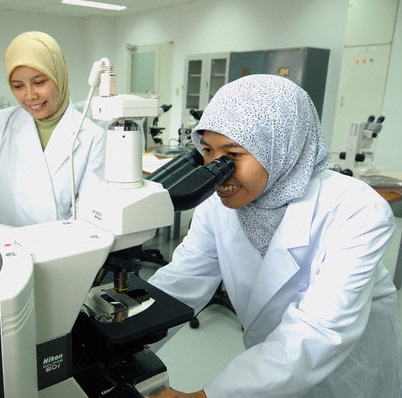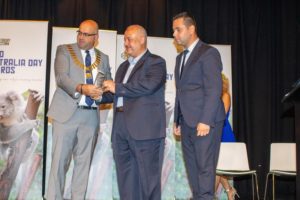
July 30 2010
Despite the recent barrage of news on the ridiculous niqab/hijab/burqa bans restricting women’s entry into education, it turns out that Muslim women are some of the best educated women in the world. Even in the most unlikely place of Saudi Arabia, Muslim women are graduating and becoming some of the most accomplished and successful scientists in the world.
According to the latest report by UNESCO, women in Saudi Arabia now outnumber western women in worldwide university enrollment and graduation rates. Furthermore, 13 Muslim countries produce a higher percentage of women science graduates than the US and upto 40% of Saudi doctors are women. And it’s not only students and doctors that are pushing the boundaries, notables promoting science to women include Sheikha Mozah of Qatar and Princess Sumaya of Jordan. The science revolution of the Islamic world is here, and clearly it’s being led by women.
I spoke to Samira Islam – the first Saudi woman to complete a basic education, gain a PhD and be short listed for the L’Oreal/UNESCO ‘Women in Science’ award – about the role she played in transforming Saudi Arabia’s education system for women.
Speaking to me from her apartment in Cairo overlooking the Nile River, Samira admits that when she was growing up in the late 1950’s things were very different. “There was very little schooling and the education system for girls was primitive in Saudi Arabia,” explains Samira. “People would send their daughters to a woman’s house to just learn the Qur’an and that was the maximum that was on offer.”
Samira’s parents, however, and in particular her father were keen that she get a good education and paid the teachers from the local school, which was strictly for boys, to teach her. After her secondary education, Samira’s father realized that there were little facilities for his daughter in Saudi and so sent her to Egypt to finish her studies. She went onto to earn her degree and PhD in pharmacology.
“It was big news in my country and people interviewed my father,” she recalls. “There was one newspaper who interviewed him, it was the last interview before he died, and the last question they asked him was to describe what he felt about his daughter being the first woman in Saudi to receive a PhD and he said ‘Now, I can accept death with pleasure.’” A couple of months later Samira’s father passed away and she decided to return to Saudi.
She soon found work at the King Abdul Al-Aziz University which had a branch for girls to study although they weren’t allowed to enroll as official students. “I held talks and lectures but they had to be after Maghrib when it got dark and in a different building so that the girls weren’t seen going into the university.” Professor Samira was unhappy with this and decided to try and open an official department for girls.
However, many feared a backlash, as there had been when the first girl’s primary school opened in 1950. The head of King Abdul Al-Aziz University told Samira that fanatics would kill her but she replied that all she wanted was one chance. “There were some fanatics, I hate to use the word Islamists and ruin the image of Islam because of some opportunists, who were against the school. They went to King Faisal and told him that they would never let their girls go to the school. He said ‘Even if the school is in the dessert whoever wants to go can go and if you don’t want to go than don’t go!’”
A year later in 1974, the girls were allowed to enroll as formal students and were taught medicine and science. “Things moved fast and people seemed to accept the changes,” admits Samira. “I was respected by the other lecturers who took me seriously and weren’t wanting to see themselves as superior.”
In the first year alone, forty girls enrolled for science and sixty others for medicine and since then women’s education progressed. As the UNESCO report shows, women are enrolling in science degrees in numbers to rival the west and in Saudi Arabia now women make up 58% of the student population.
“I don’t know if it was because of my time in Egypt but I wanted to see change even if it was slowly and a lot really has changed. We now have several Muslim women who are proving that they are smart and capable scientists.”





